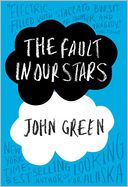 Name: Anders
Name: AndersAge: 17
Books recently read for fun: The Girl with the Dragon Tattoo; The Hunger Games; Catching Fire; Mockingjay; Expensive People; By the River Piedra I Sat Down and Wept; Veronika Decides to Die
Books recently read for school: Pride and Prejudice; Hamlet; The Iliad.
Books in your to-read pile: The Girl Who Played With Fire; The Girl Who Kicked the Hornet's Nest; The Help; A Gate at the Stairs.
Favorite Authors: I still don't have any 'favorite' authors. There aren't any that I am madly in love with, and whose works I enjoy without exception.
Favorite books: Leaves of Grass, The Alchemist, Brave New World, The Hobbit, Extremely Loud and Incredibly Close.
Why do you like to read?: Reading provides an escape. I don't feel anything that doesn't have to do with the story. I never stray from the plot line in my needs and emotions. It is all-encapsulating. A great book will make the sky dark and my eyes weary. It will release me with one final period as if I suddenly woke from an amazing dream.
Favorite movies: Extremely Loud and Incredibly Close; Inception; Ratatouille; Wall-E; Up
Favorite musicians/singers/types of music: Yellow Ostrich; Freelance Whales; Foster the People; The Hush Sound; The Script; Local Natives; Avi Buffalo; Young the Giant; Fleet Foxes; The Morning Benders.
Do you listen to music (or TV) while you read?: No, it detracts from the reading experience.
Do you finish every book you start?: Almost always. If it's a recommendation, I might try the first few pages and if I don't like the writing style then I will stop.
Other notes: I got a Kindle Touch and I don't miss feeling paper under my hands when I read. I recommend them.








 Reading the right book at the right time can change somebody's life.
Reading the right book at the right time can change somebody's life.  First, a few disclaimers. I've met John Green. I like John Green. I've been a Nerdfighter since
First, a few disclaimers. I've met John Green. I like John Green. I've been a Nerdfighter since 




